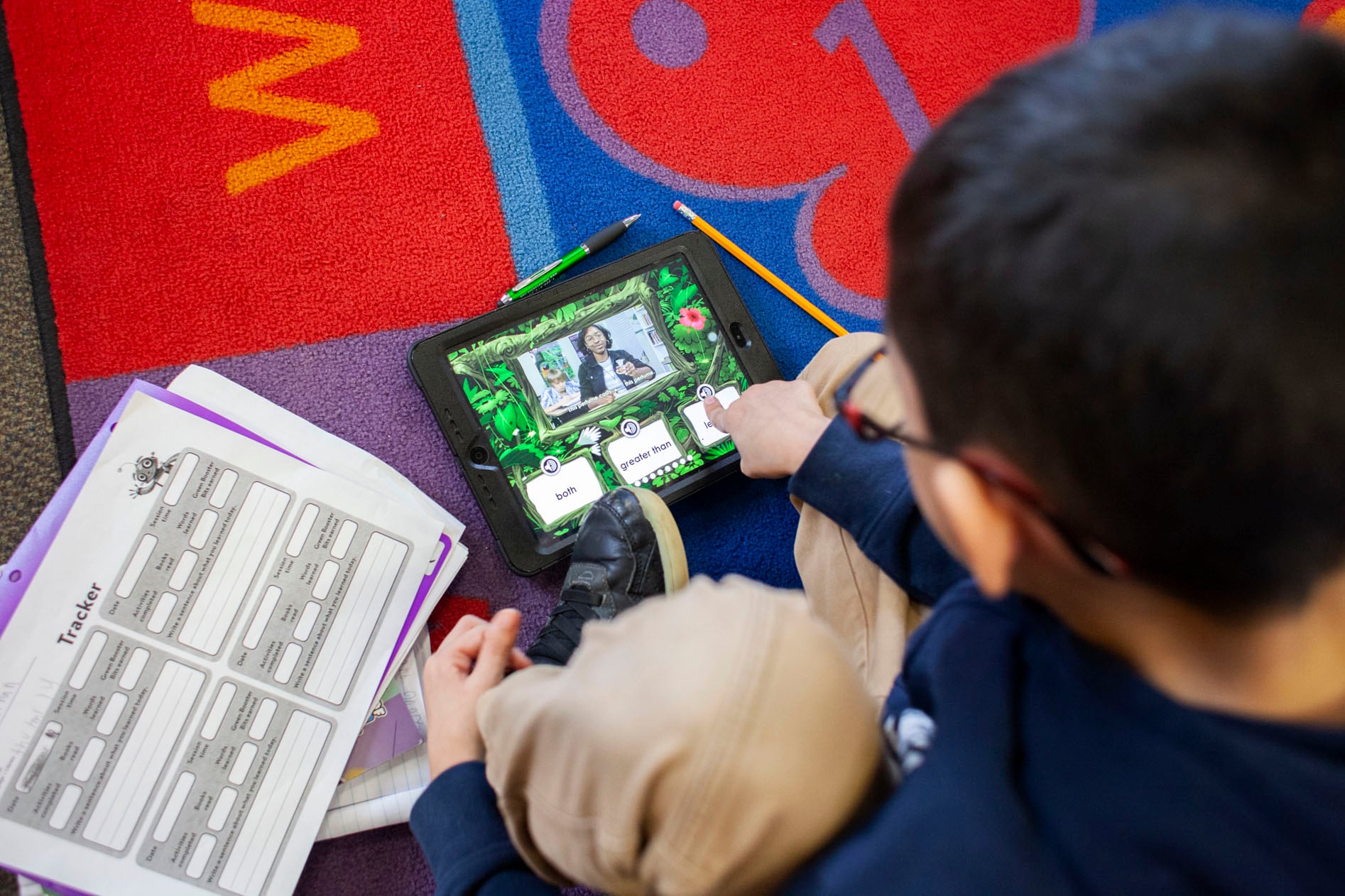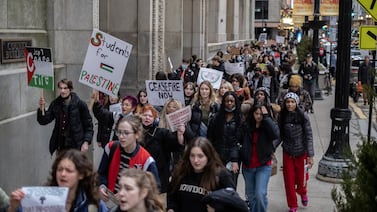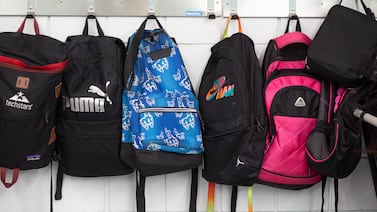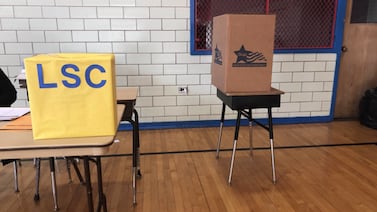Six weeks after Illinois shuttered school buildings amid the coronavirus pandemic, Chicago will relax its grading policy and automatically promote elementary students to the next grade.
High school students won’t get an automatic pass. After this semester, those who have fallen behind or don’t show up will have to attend virtual “credit recovery” programs or summer school classes that the district is mapping out, according to plans released Thursday.
The proposal still requires approval from the Chicago Board of Education.
Chief Education Officer LaTanya McDade said the plan was a complex undertaking and that the district wanted to give students a chance to earn grades, while also acknowledging that some who won’t engage at all will need multiple chances to catch up.
“When you have a crisis like this that significantly impacts education, doing nothing isn’t an option,” McDade said. “We have to have expectations for continued learning.”
She said Friday that the district has distributed 100,000 loaner devices — out of 115,000 promised. Internet access, however, remains an issue. The plan includes schools providing paper packets every two weeks. A research brief in late April showed that as many as one in five Chicago children under 18 still lack the broadband access required to use them.
Here’s a quick explainer of the new grading policy.
Many teachers will still give letter grades.
As in New York City, Chicago will ask teachers to grade assignments through the fourth quarter. But teachers have options and students have leeway.
Students who earned low grades during remote learning or who complete paper packets get a pass that won’t affect the final GPA, which will be based on cumulative grades throughout the year.
Students who earn an F on remote learning assignments or who don’t participate will receive an incomplete. That won’t factor into a student’s grade point average, either, but it does flag that student for summer school.
No student can receive a fourth-quarter grade that falls below their third-quarter grade.
Elementary students automatically advance to the next grade; high school students do not.
Under the plan, elementary students will automatically advance to the next grade. Freshmen and sophomores in high school will have the options of letter grades or pass/incomplete.
Chicago will waive some requirements like the SAT college-entry exams and a service learning requirement for high schoolers. It also will waive a computer science course requirement.
However, the district will not suspend the requirement that students draft a postsecondary plan before graduation.
Seniors don’t automatically graduate.
McDade said most seniors would likely end up finishing the semester with either the grade they had when campuses closed or a better grade if they complete coursework.
But she acknowledged that some will end up in classes to earn missing credits. “Credit recovery is not a new concept for high schools,” she said. “We’ll be absorbing the cost for credit recovery for students who earn an incomplete, but they will need to enroll.”
Details pertinent to selective enrollment applications — which require grades — are still in the air.
The district is still considering how incompletes could affect applications to selective-enrollment schools.
Summer school is a key ingredient in the plan.
Students who receive incompletes at the elementary or high school level will be flagged for summer school.
For summer school, McDade said that administrators are working on two scenarios: one if in-person schooling can happen with some restrictions — such as social distancing — and one if summer learning has to happen virtually.
Summer schools use a centralized curriculum provided by the district.
Whether buildings reopen or not this summer, “we want to make sure students have an option,” McDade said, “especially considering the amount of time lost for the year.”
The city’s teachers union, and some students, are taking a critical view of the proposal.
The city’s teachers union had been calling on Chicago to adopt a pass/no pass system, with an opt-in for students who need letter grades for college admissions. In an e-mail Thursday, it said the plan was a step in the right direction but still fell short, arguing that students who are disconnected from school are still considerably disadvantaged.
“Students with digital access can receive grades if it’s in their favor, and students without digital access only have a right to a passing grade or an incomplete,” union President Jesse Sharkey wrote, adding that the plan will ultimately require students without online access to do more online work to move ahead. “These students will be further discouraged because they will feel — whether it’s the intention or not — punished for that lack of access.
Luz Mayancela, a junior at Westinghouse College Prep high school, echoed that concern, saying students are grappling with limited access to technology and life challenges brought on by the coronavirus outbreak. She noted some students are still waiting for loaner devices, and that she is among the students who lack access to the internet at home.
Mayancela, who worked with the group Chicago Student Pandemic Response Team on a petition calling for a credit/no credit system, said she understands the argument that educators have made: that grades help them continue to track student progress.
But, she said, “The fact that students still need to be held accountable during a global pandemic is so unjust.”
Mila Koumpilova contributed reporting.








